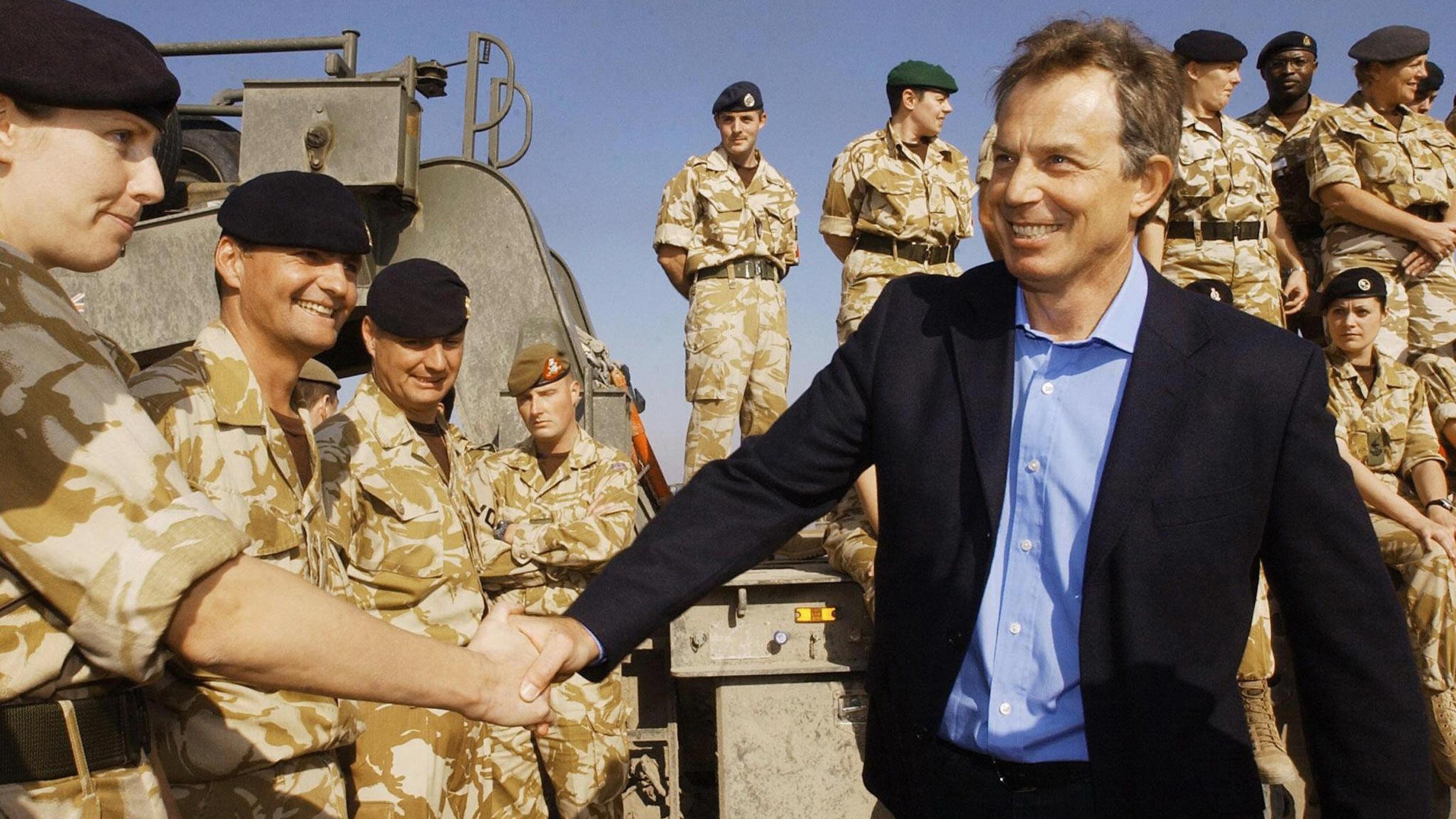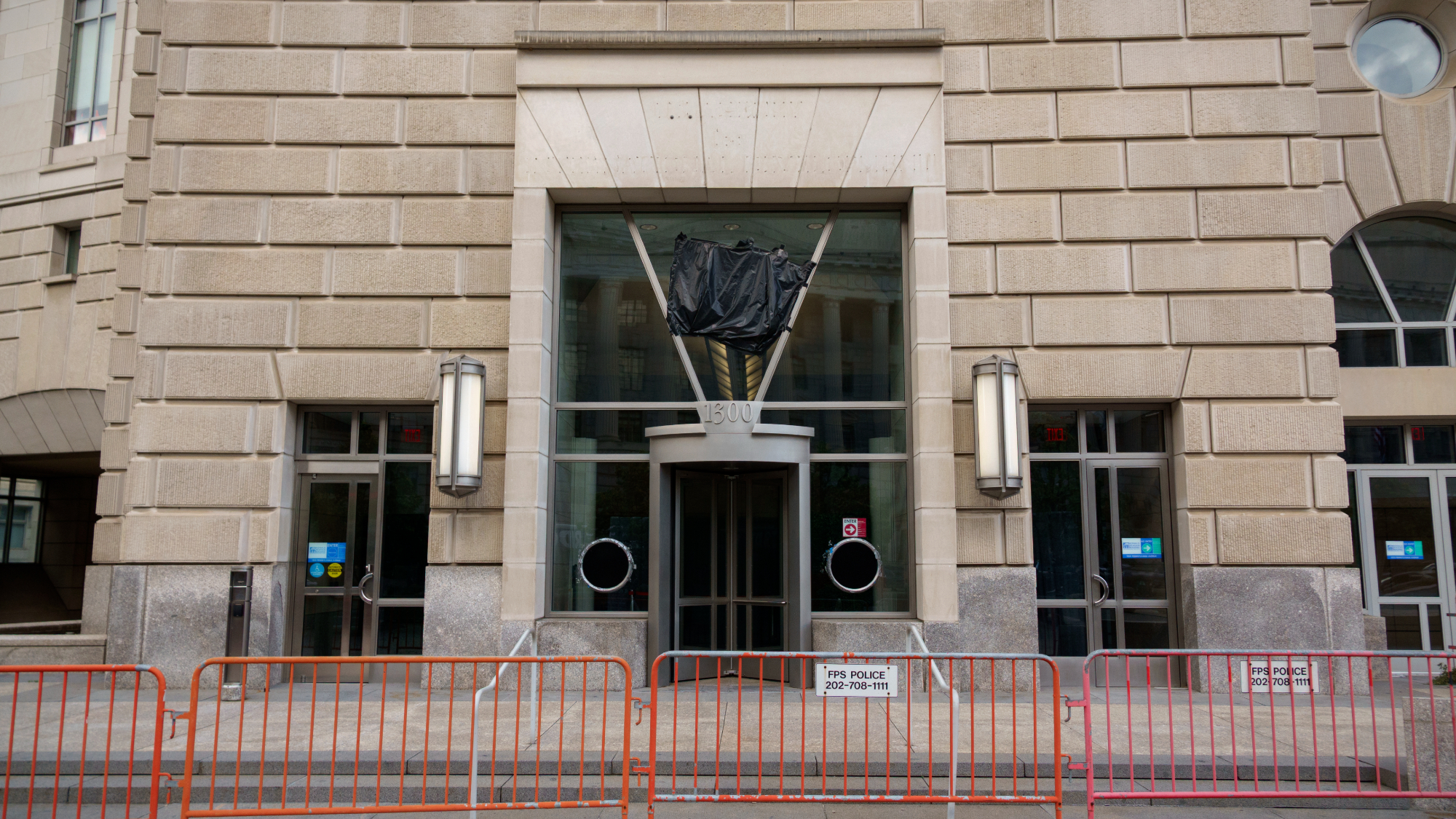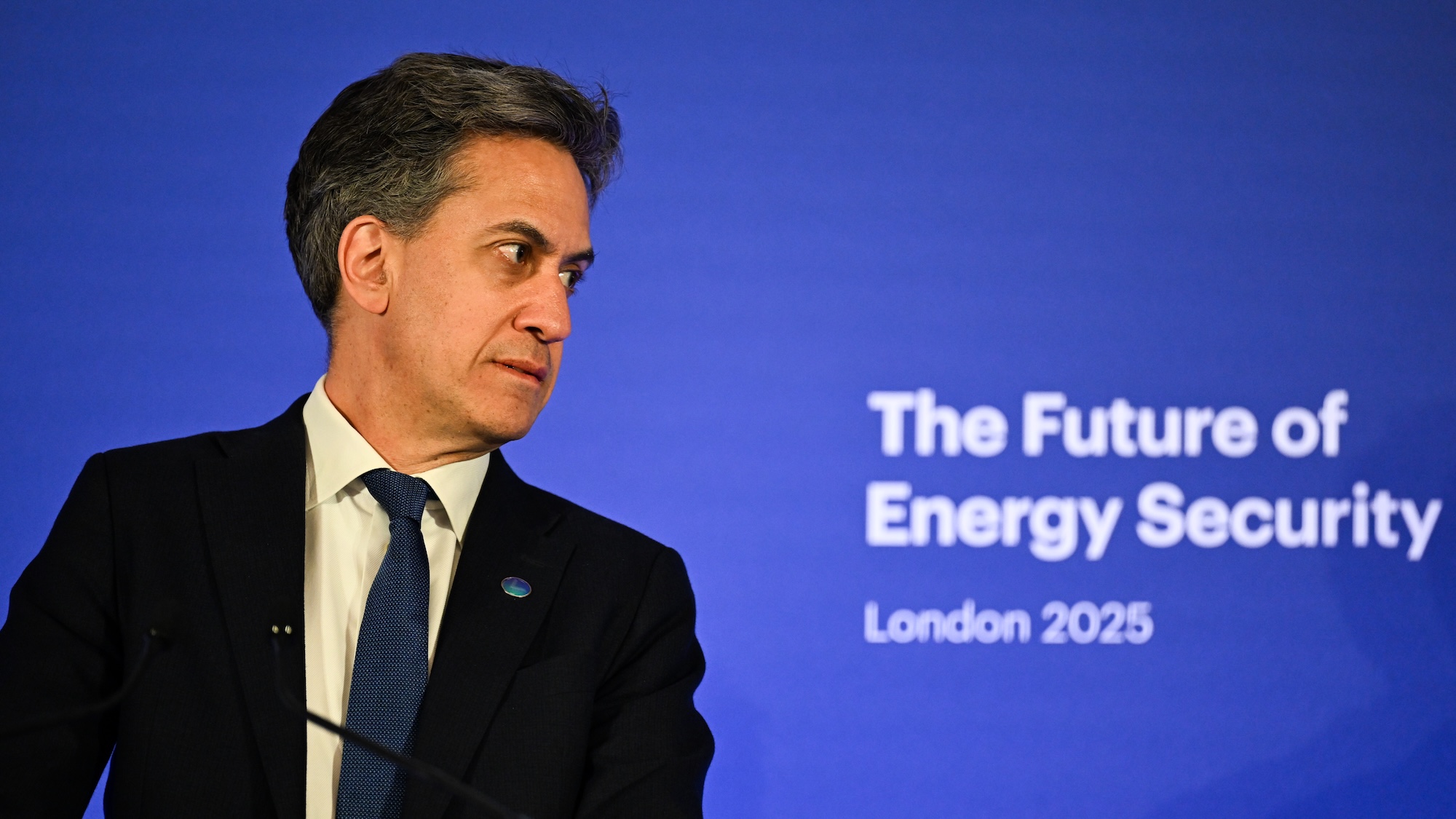Iraq war 20 years on: the lessons left unlearned by British governments
Little has changed in the two decades since Tony Blair and George Bush’s invasion, argues politics lecturer

A free daily email with the biggest news stories of the day – and the best features from TheWeek.com
You are now subscribed
Your newsletter sign-up was successful
Christopher Featherstone, associate lecturer at University of York’s Department of Politics, on the culture of political decision-making behind closed doors.
The Iraq war remains the UK’s most investigated foreign policy decision of the past 50 years. As the world marks 20 years since the invasion that killed hundreds of thousands of Iraqis, we have to ask, has the UK learned any lessons from what happened in 2003?
The US and UK invaded Iraq in 2003 with the declared intention of removing weapons of mass destruction (WMD) and liberating the Iraqi people from the dictatorship of Saddam Hussein. This followed a months-long process of diplomacy and UN weapons inspections, during which time the US and UK built their case for invasion.
The Week
Escape your echo chamber. Get the facts behind the news, plus analysis from multiple perspectives.

Sign up for The Week's Free Newsletters
From our morning news briefing to a weekly Good News Newsletter, get the best of The Week delivered directly to your inbox.
From our morning news briefing to a weekly Good News Newsletter, get the best of The Week delivered directly to your inbox.
As a result of all the investigations into the Iraq war, we have a good understanding of what flaws affected this process, particularly in terms of how prime minister Tony Blair made the decisions he did.
Why do we need to learn from Iraq?
The war resulted in the deaths of hundreds of thousands of Iraqis and triggered a sectarian conflict that has cast a long shadow over the country. For the UK and US, there was a huge cost in terms of service members injured or killed.
The political fallout has lasted generations too. When he announced the findings of the official Iraq inquiry in 2016 Sir John Chilcot said “the UK was, in fact, undermining the [UN] Security Council’s authority” by invading Iraq. If the UK government is to be a trusted international partner in future foreign policy actions, it must understand what went wrong in this case.
The inquiry found that the culture that prime minister Tony Blair established in Number 10 led to a lack of discussion before the decision was made to invade Iraq. Blair was known to operate what became known as a “sofa government” – an informal mode of working that saw him relying on an inner circle of people invited to hang out on his sofa in Downing Street.
A free daily email with the biggest news stories of the day – and the best features from TheWeek.com
This culture of limiting discussion to a select group was combined with a habit of making important decisions and commitments unilaterally. Blair made some policy by sending personally authored notes to US president George W. Bush, the content of which he had not discussed with relevant ministers. The infamous “with you, whatever” note that Blair sent to Bush in 2002 is a prime example. Blair committed to backing Bush come what may without talking to his cabinet and with no change in official government policy.
Both the Chilcot inquiry and the 2004 Butler review on the use of intelligence stressed the importance of government procedures such as collective cabinet decision-making. Chilcot said the cabinet was only able to give limited scrutiny to the attorney general’s legal advice on the invasion. When the attorney general presented Number 10 with conflicting advice for ministers to discuss, he was pushed into giving a more definitive view.
Lessons left unlearned
Despite all the investigations into the Iraq war and the sheer amount of evidence collected, little appears to have changed as a result.
The Iraq inquiry found that Blair’s Number 10 culture excluded outsiders and limited objections and discussion. Even now, multiple administrations later, there doesn’t appear to be a move to change this. In fact, ministers are more involved than ever in the process to select senior civil servants and accusations about them bullying officials suggests little progress has been made in enabling robust discussion about difficult subjects.
As for proper cabinet discussion, one need only think back to the sudden economic crisis of October 2022 that was induced by Liz Truss and her chancellor Kwasi Kwarteng’s attempt to radically restructure the British economy without discussing their plans in full with the cabinet. Similarly, the controversy surrounding David Cameron’s removal of British citizenship from terror suspects or Boris Johnson’s prorogation of parliament in 2019 could have been better managed with fuller discussion of the decisions in cabinet.
One proposed way from the Chilcot review to reinforce government procedures was to give the cabinet secretary more power to draw attention to ministers who deviate from standard procedures – such as cabinet scrutiny of decisions. The proposal is that the cabinet secretary should be able to ask, on the record, for formal instructions from ministers if they feel that the cabinet manual is being ignored.
Those proposing this idea believe that this would have drawn greater public attention to how cabinet was sidelined on Iraq. In the proposal, this request for guidance would also be sent to the relevant House of Commons select committee, bringing public oversight and attention. However, this proposal has been rejected twice in recent years.
Despite the controversy surrounding the legal process in the months before the UK invaded Iraq, there has been little change to this process. There is little to prevent a future attorney general being pressured out of presenting both sides in a legal debate, and into giving only the legal opinion that the prime minister wants.
It is surprising that so little has changed in the two decades since the invasion, even after years of investigation and inquiry. The UK has not invaded another country since Iraq but nor has it taken action that would help prevent such a poor decision being made again in the future. There is little point in being so bruised by a decision without having learned the lessons of the mistake.
Christopher Featherstone, Associate Lecturer, Department of Politics, University of York
This article is republished from The Conversation under a Creative Commons license. Read the original article.
-
 The ‘ravenous’ demand for Cornish minerals
The ‘ravenous’ demand for Cornish mineralsUnder the Radar Growing need for critical minerals to power tech has intensified ‘appetite’ for lithium, which could be a ‘huge boon’ for local economy
-
 Why are election experts taking Trump’s midterm threats seriously?
Why are election experts taking Trump’s midterm threats seriously?IN THE SPOTLIGHT As the president muses about polling place deployments and a centralized electoral system aimed at one-party control, lawmakers are taking this administration at its word
-
 ‘Restaurateurs have become millionaires’
‘Restaurateurs have become millionaires’Instant Opinion Opinion, comment and editorials of the day
-
 The Board of Peace: Donald Trump’s ‘alternative to the UN’
The Board of Peace: Donald Trump’s ‘alternative to the UN’The Explainer Body set up to oversee reconstruction of Gaza could have broader mandate to mediate other conflicts and create a ‘US-dominated alternative to the UN’
-
 Gaza peace deal: why did Trump succeed where Biden failed?
Gaza peace deal: why did Trump succeed where Biden failed?Today's Big Question As the first stage of a ceasefire begins, Trump’s unique ‘just-get-it-done’ attitude may have proven pivotal to negotiations
-
 Five key questions about the Gaza peace deal
Five key questions about the Gaza peace dealThe Explainer Many ‘unresolved hurdles’ remain before Donald Trump’s 20-point plan can get the go-ahead
-
 Should Tony Blair run Gaza?
Should Tony Blair run Gaza?Today's Big Question Former PM is a key figure in plans for a post-war Palestine and could take up a formal leadership position
-
 Obama, Bush and Bono eulogize USAID on final day
Obama, Bush and Bono eulogize USAID on final daySpeed Read The US Agency for International Development, a humanitarian organization, has been gutted by the Trump administration
-
 Ed Miliband, Tony Blair and the climate 'credibility gap'
Ed Miliband, Tony Blair and the climate 'credibility gap'Talking Point Comments by former PM Tony Blair have opened up Labour to attacks over its energy policies
-
 Is there a Christmas curse on Downing Street?
Is there a Christmas curse on Downing Street?Today's Big Question Keir Starmer could follow a long line of prime ministers forced to swap festive cheer for the dreaded Christmas crisis
-
 John Prescott: was he Labour's last link to the working class?
John Prescott: was he Labour's last link to the working class?Today's Big Quesiton 'A total one-off': tributes have poured in for the former deputy PM and trade unionist